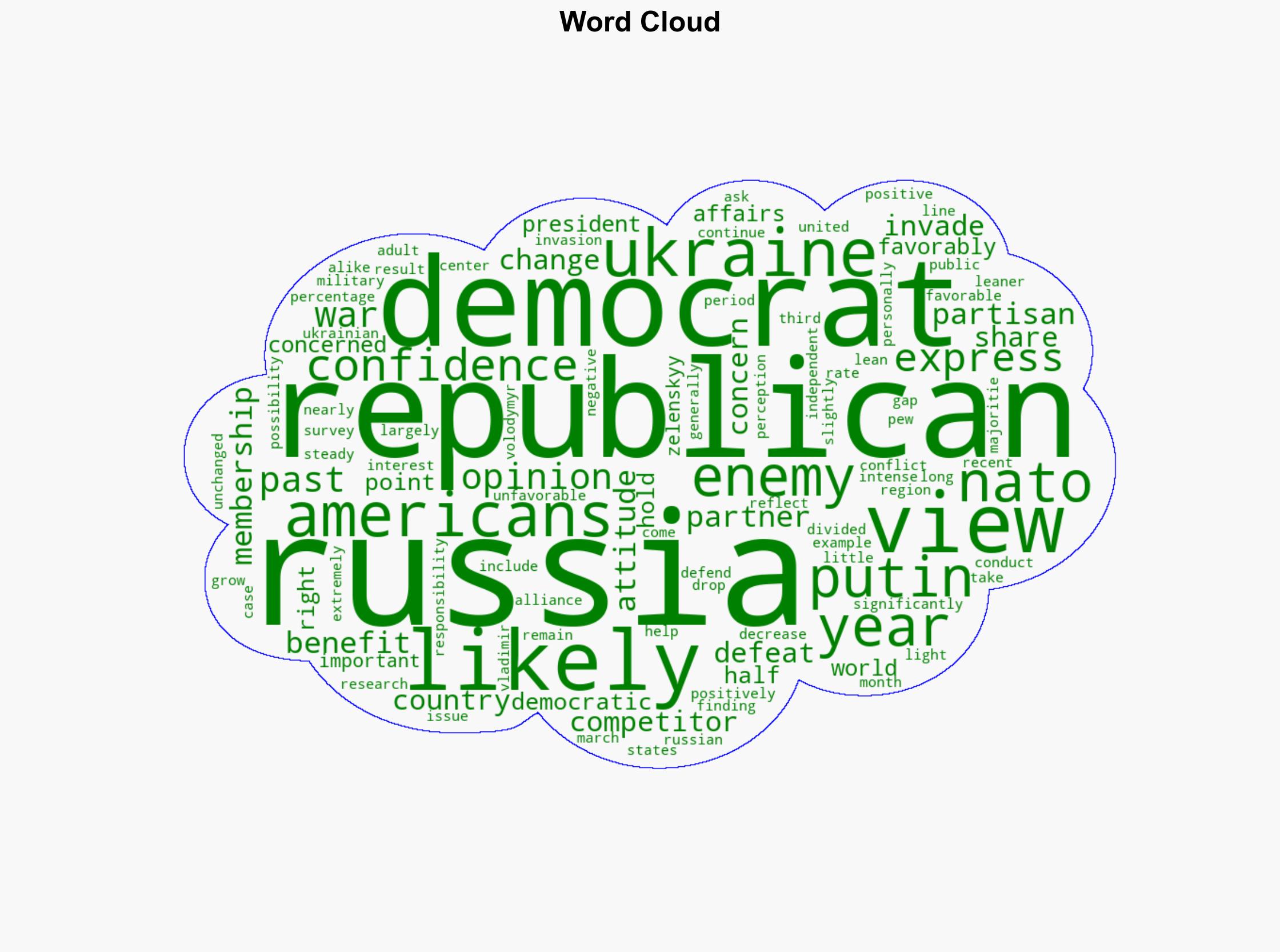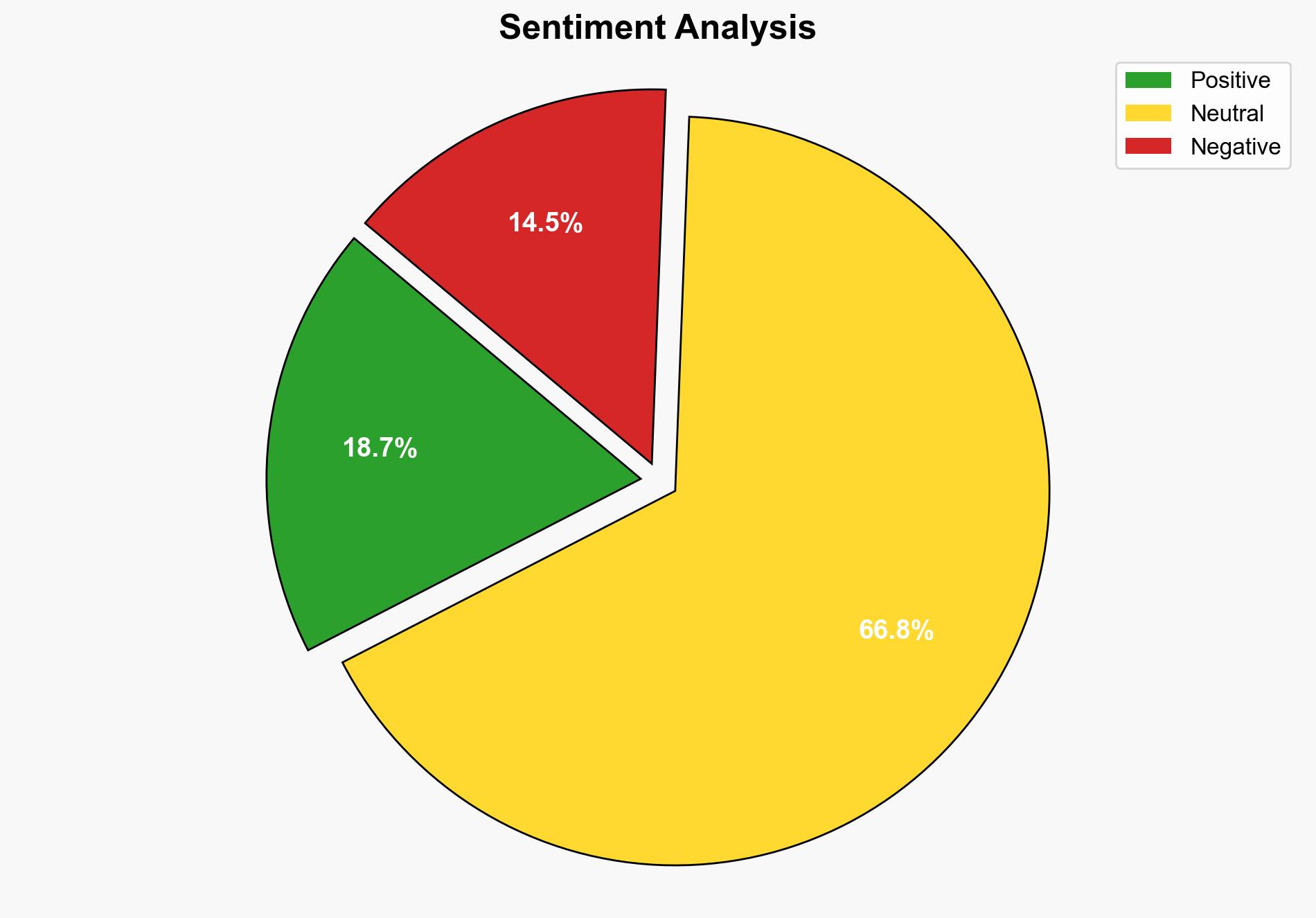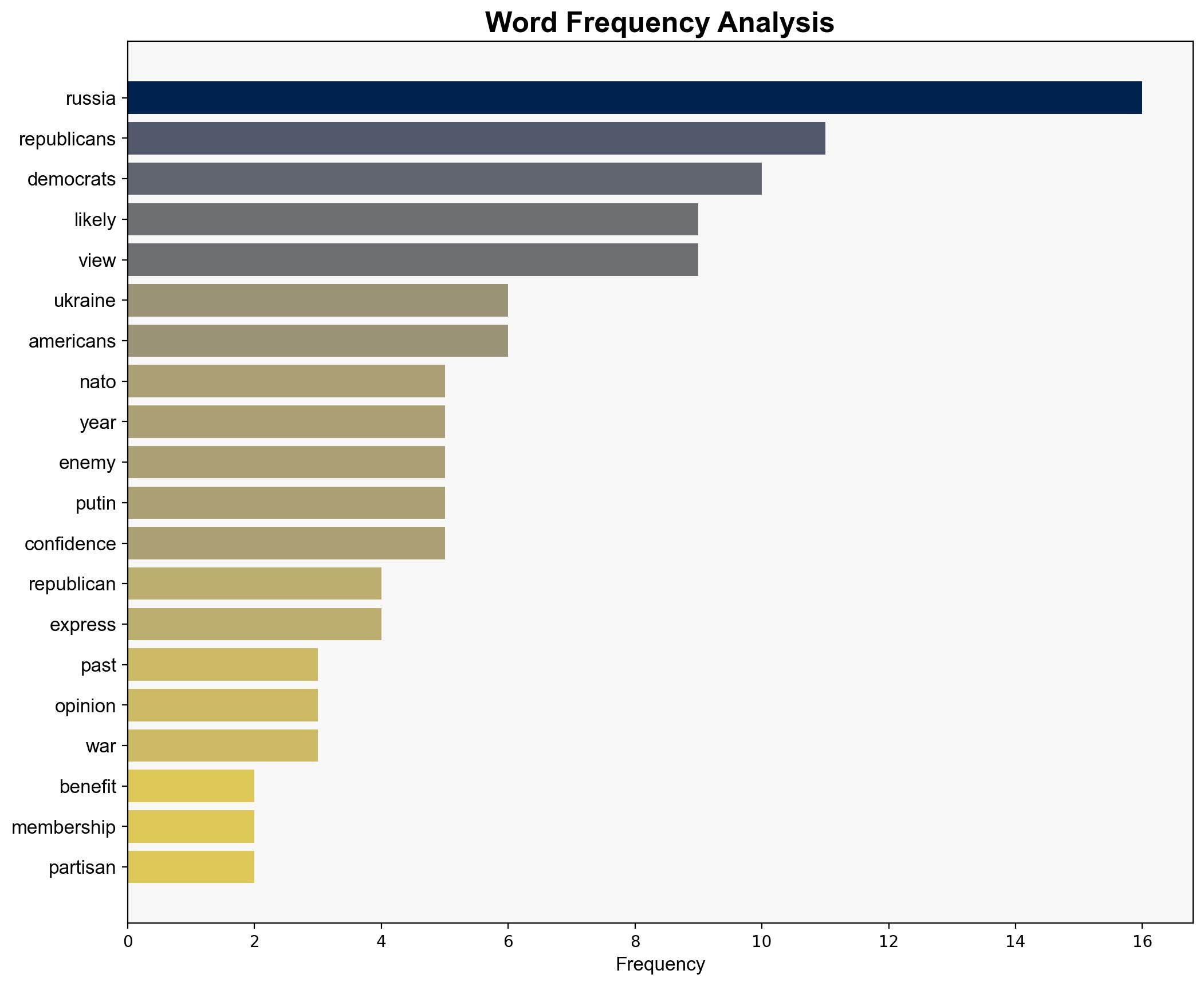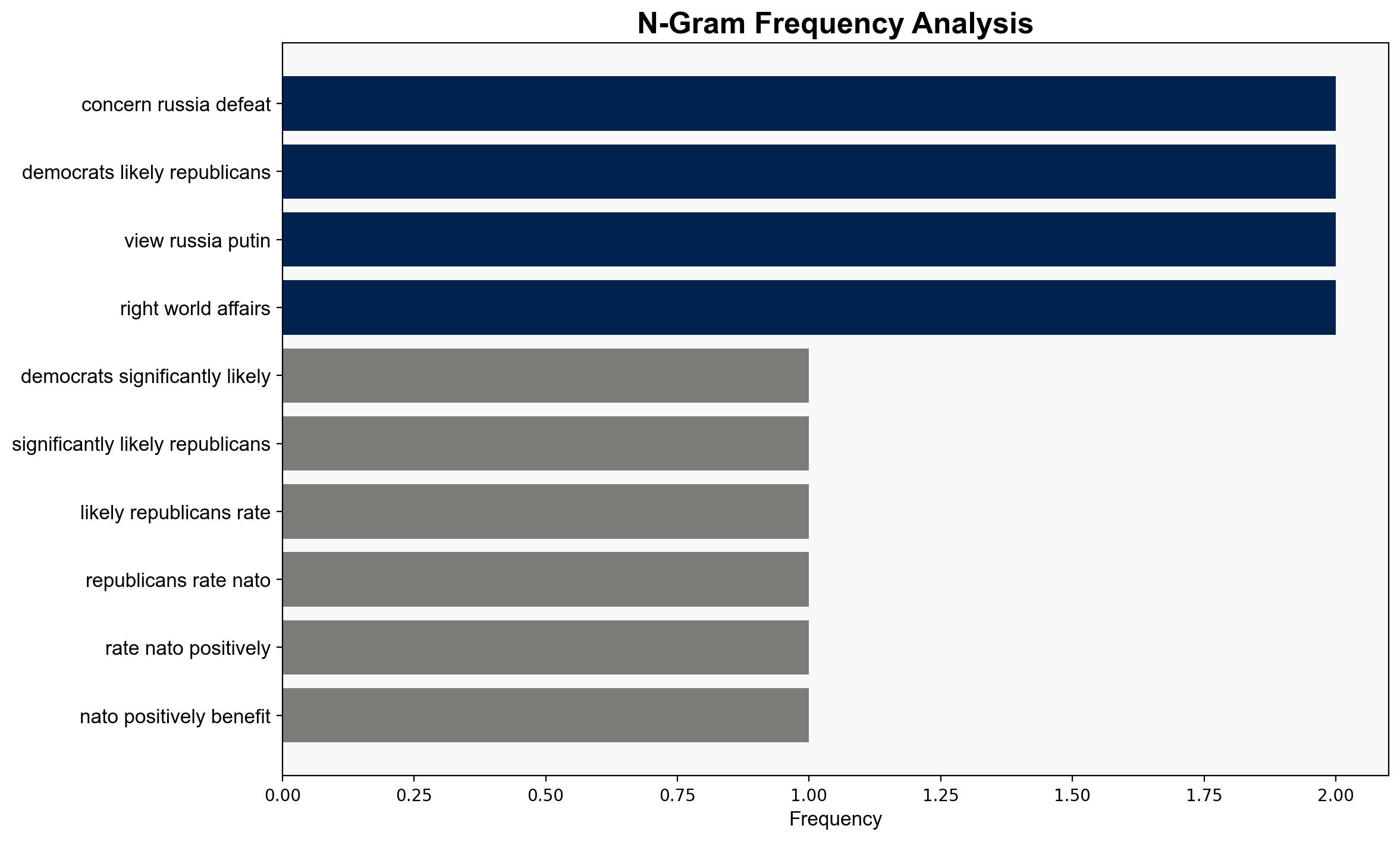Republican Opinion Shifts on Russia-Ukraine War – Pew Research Center
Published on: 2025-04-17
Intelligence Report: Republican Opinion Shifts on Russia-Ukraine War – Pew Research Center
1. BLUF (Bottom Line Up Front)
Recent findings indicate a significant shift in Republican perspectives regarding the Russia-Ukraine conflict. Republicans are increasingly viewing Russia as a competitor or partner rather than an enemy, contrasting with Democratic views. This shift may influence U.S. foreign policy and international alliances, particularly concerning NATO and support for Ukraine. Strategic recommendations include monitoring these opinion trends and their potential impact on U.S. geopolitical strategies.
2. Detailed Analysis
The following structured analytic techniques have been applied:
SWOT Analysis
Strengths: Bipartisan recognition of NATO’s importance, with 66% of Americans acknowledging its benefits.
Weaknesses: Growing partisan divide on perceptions of Russia, potentially weakening unified U.S. foreign policy.
Opportunities: Potential for diplomatic engagement with Russia if viewed as a competitor rather than an enemy.
Threats: Reduced concern among Republicans about Russia’s regional ambitions may undermine collective security efforts.
Cross-Impact Matrix
The shift in Republican views may influence U.S. military and economic support for Ukraine, affecting regional stability. A less unified stance on Russia could embolden Russian actions in Eastern Europe, impacting NATO’s strategic posture.
Scenario Generation
Scenario 1: Continued partisan divergence leads to reduced U.S. support for Ukraine, altering the conflict’s dynamics.
Scenario 2: Bipartisan efforts to reaffirm NATO’s role strengthen collective security, deterring Russian aggression.
Scenario 3: Diplomatic initiatives with Russia emerge, leveraging the shift in Republican perspectives to de-escalate tensions.
3. Implications and Strategic Risks
The evolving Republican stance on Russia poses risks to U.S. foreign policy coherence, potentially affecting NATO’s effectiveness and U.S. commitments in Eastern Europe. A divided domestic front may weaken international perceptions of U.S. resolve, emboldening adversarial actions by Russia.
4. Recommendations and Outlook
- Enhance bipartisan dialogue to align U.S. foreign policy objectives, ensuring consistent support for NATO and Ukraine.
- Monitor shifts in public opinion to anticipate changes in policy and adjust diplomatic strategies accordingly.
- Develop contingency plans for varying levels of U.S. engagement in the Russia-Ukraine conflict, considering potential shifts in congressional support.
5. Key Individuals and Entities
Vladimir Putin




